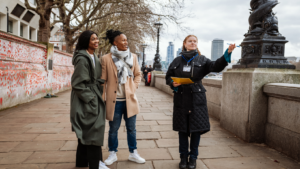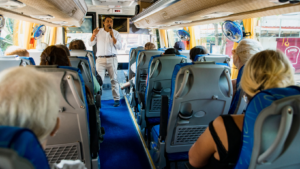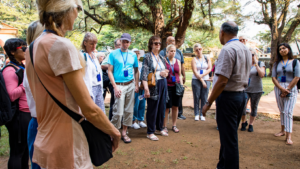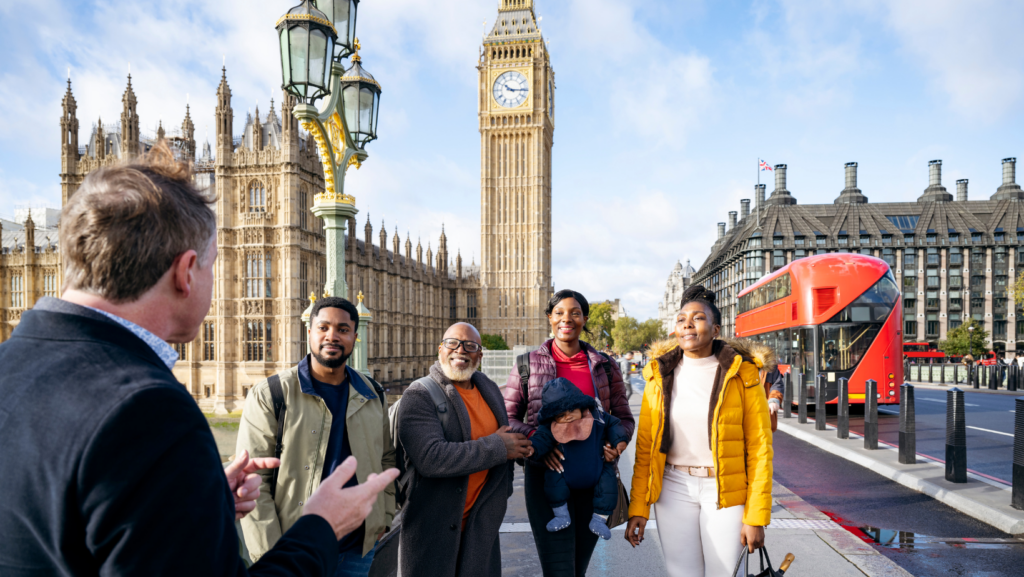Do you have a passion for exploring new places and sharing your experiences with others? If so, becoming a travel guide might be the perfect career path for you. This job offers the chance to immerse yourself in diverse cultures, meet new people, and make lasting memories.
However, it’s not all about jet-setting and adventure. A successful travel guide needs a unique blend of skills and knowledge. From understanding local history and culture to mastering foreign languages and customer service, there’s a lot to learn. This article will provide a roadmap to help you start your journey in this exciting field. So, pack your bags and get ready to embark on a new adventure as we delve into the world of travel guiding.
How to Become a Travel Guide

A career as a travel guide presents unique adventures mixed with fascinating responsibilities. This section delves deeper into the expectations and requisite skills for how to become a travel guide.
Expectations and Responsibilities
Often synonymous with freedom and fun, the travel guide profession necessitates serious duties. Travel guides not only immerse themselves in new cultures and languages, but also bear the responsibility of ensuring a memorable and safe experience for their clients.
They oversee itineraries, manage logistics, handle emergencies, and bridge language barriers. They’re relied upon by travellers to navigate unfamiliar territory, providing reliable guidance and insightful, engaging introductions to tourist destinations. They also promote cultural exchange, as sharing knowledge on local customs heightens tourists’ appreciation and understanding of a location’s heritage.
Skills Required

The skillset of a proficient travel guide extends beyond mere tourism knowledge. A local history savant, fluent linguist, articulate communicator, and adept problem solver- that’s the all-round package of an accomplished travel guide.
Their deep-rooted knowledge about destinations covers aspects like history, culture, environment, and politics. Flawless communication in multiple languages positions them as cultural mediators, enhancing tourist experiences. Strong customer service instincts are key, helping guests feel at ease during their journey. Moreover, their quick thinking and problem-solving approach comes handy in unexpected situations, ensuring smooth travel for all.
Building Experience in the Travel Industry
Paving a path on how to become a travel guide in the travel industry necessitates a strong blend of hands-on experience and industry knowledge. Accruing this crucial experience involves strategic steps like taking up internships, volunteering, and working in related fields.
Internships and Volunteer Opportunities
One stepping-stone to building this cardinal experience encompasses internships and volunteer opportunities in the tourism sector. Both internships and volunteering open doors to invaluable insights and learning experiences, ushering an aspirant into the industry’s inner workings. For instance, internships with a travel agency or a tour operator company facilitate direct contact with seasoned professionals. It presents a firsthand view of planning, coordinating, and implementing tours, thereby familiarizing the intern with standard operations, marketing strategies, and customer service duties.
Working in Related Fields

Apart from internships and volunteer undertakings, acquiring experience in fields allied to tourism serves as another crucial gateway to becoming a proficient travel guide. It’s important for aspiring travel guides to comprehend that experience isn’t limited to positions explicitly labeled ‘travel guide.’ Working in roles such as hotel receptionists, flight attendants, local tour operators, or district tour management agencies can equip aspirants with pertinent skills like customer management and services, understanding and dealing with travel logistics, as well as speaking different languages.
Cultivating Essential Qualities of a Successful Travel Guide
Enhancing communication skills, a requisite for how to become a travel guide, involves articulating information clearly and confidently. For instance, a travel guide explaining the historical significance of the Colosseum must break down complex concepts into digestible pieces of information. Aptitude in active listening also plays a significant role, enabling travel guides, for instance, to comprehend tourists’ questions clearly and respond appropriately.
Nurturing a profound passion for travel and education kindles the spark that resonates with travellers. For example, a travel guide who cherishes trekking through the Himalayas, sharing knowledge and personal exploration experiences, generates enthusiasm in tourists. Supplementing wanderlust with a perpetual thirst for learning fosters an enriching environment.

